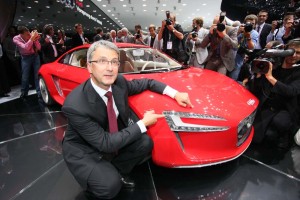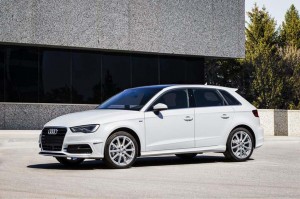A month ago, German authorities jailed then-Audi CEO Rupert Stadler as part of an investigation into the diesel emissions scandal — now he wants out.
Stadler, who is being held at a prison in Augsburg, appealed to a Munich court to be freed from jail during the investigation. He was “provisionally” arrested in mid-June as authorities expanded their investigation into Volkswagen AG and its other brands because they feared he may flee.
However, Stadler cooperated with investigators, but has since stopped giving statements, the Reuters reported. Munich prosecutors are probing Stadler and another member of Audi’s top management for suspected fraud and false advertising tied to illegal pollution levels in its cars and manipulated vehicle tests.
Audi named sales executive Abraham Schot was named Stadler’s replacement on an interim basis, pending the outcome of the investigation. Stadler isn’t the only senior staffer to be placed under the microscope.
(Audi CEO Stadler arrested as Germany expands diesel emissions probe. Click Here for the story.)
Nearly a dozen executives and managers from the vast Volkswagen Group empire have been indicted since the automaker was first charged in September 2015 with rigging various diesel engines to illegally pass emissions tests.
Several have already been convicted in the U.S., though others have fled to Germany where they cannot be extradited. But as many as 20 others – including Stadler – are now under suspicion as Germany moves forward with its own investigation, according to the Associated Press.
The diesel emissions scandal begin to unravel when a private testing company attempted to understand how VW and its various brands were able to meet strict pollution mandates, in some instances without using the urea additive other manufacturers required.
(Click Here to see why VW was tagged with $1B fine in Germany for diesel-cheating scandal.)
In September 2015, the U.S. Environmental Protection Agency weighed in, accusing VW of using a “defeat device,” software designed to adjust engine settings during emissions tests to reduce the output of smog-causing oxides of nitrogen and other pollutants.
VW subsequently acknowledged rigging two of its diesel engines. In a series of settlements with U.S. and California authorities, as well as owners, shareholders and diesels, the company agreed to a mix of fines, repairs and vehicle buybacks – as well as the creation of a program to promote the sale of electrified vehicles. All told, those moves are expected to cost the carmaker as much as $30 billion.
But the cheating probe continues to play out in VW’s home market, even as it begins to wind down in the U.S. Just this month, German authorities levied $1.2 billion in fines against the Volkswagen Group. In May, Martin Winterkorn, the VW CEO at the time the scandal erupted, was indicted. And nearly two dozen other current and former employees remain under a cloud of suspicion.
(To see more about the German court ruling allowing a ban on diesel engines, Click Here.)
Stadler is the highest-level executive targeted since Winterkorn was indicted. The generally well-respected executive had been one of several high-level managers who allegedly either approved of the diesel rigging plan or attempted to cover it up once they became aware of the scam.


